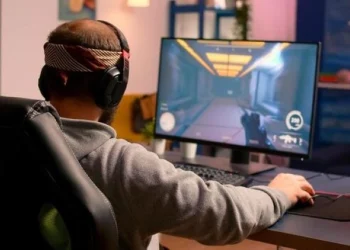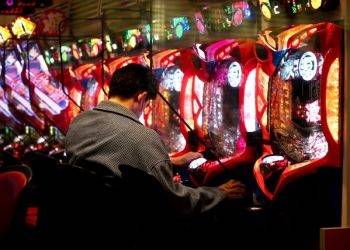Luck, an elusive force that can bring unexpected wins or losses, plays a significant role in games of chance. However, luck isn’t just a random occurrence; it’s intertwined with psychology, perception, and decision-making. In this blog, we’ll delve into the psychology of luck, exploring how the mind perceives luck, the cognitive biases that influence our beliefs, and the ways in which understanding luck can impact our approach to slot88 gambling and decision-making.
The Illusion of Luck: Cognitive Biases
Cognitive biases can distort our perception of luck:
Hindsight Bias:
After an event, we often believe that we could have predicted the outcome, making it difficult to assess the role of luck objectively.
Confirmation Bias:
We tend to seek information that confirms our preexisting beliefs about luck, leading to self-reinforcing thought patterns.
Gamblers’ Fallacy:
Believing that past outcomes influence future events, we might expect a streak of losses to be followed by a win.
The Role of Skill vs. Chance
Distinguishing between skill and chance is essential in understanding luck:
Games of Skill:
In games like poker and chess, skill plays a significant role, making luck less prominent.
Games of Chance:
Games like roulette and slot machines rely heavily on luck, as outcomes are unpredictable.
Perceived Control:
Even in games of chance, players might believe they have some control over outcomes due to personal rituals or lucky charms.
The Psychology of Superstitions
Superstitions and lucky rituals are common in games of chance:
Illusory Correlation:
Linking unrelated actions to winning outcomes reinforces our belief in the effectiveness of superstitions.
Control and Anxiety:
Superstitions provide a sense of control and reduce anxiety, enhancing the gambling experience.
Cultural Influences:
Cultural beliefs and traditions contribute to the formation of individual superstitions.
Positive Illusions: Overestimating Luck
We tend to overestimate our luck, a phenomenon known as positive illusion:
Optimism Bias:
Believing that bad luck is more likely to happen to others than to ourselves, we maintain a sense of optimism.
Illusion of Control:
We might perceive situations as more controllable than they are, leading to overconfidence in luck-based scenarios.
Impact on Decision-Making:
Positive illusions can influence financial decisions, leading to risky behaviors.
Understanding and Mitigating Bias
Understanding cognitive biases can help us make more rational decisions:
Awareness:
Recognizing cognitive biases can help us critically evaluate our beliefs about luck.
Data and Reality:
Relying on data and actual outcomes rather than perceived patterns can counter biases.
Responsible Gambling:
Understanding luck’s role in gambling can promote responsible play and decision-making.
The Myth of Luck: Strategies and Rational Play
Strategies and rational decision-making can counteract the myth of luck:
Bankroll Management:
Setting limits on gambling expenditures prevents reckless behavior driven by perceived luck.
Skill Development:
Developing skills in games of skill can enhance the influence of skill over luck.
Long-Term Perspective:
Focusing on long-term trends and probabilities rather than short-term outcomes can foster rational play.
Conclusion: Deciphering the Luck Enigma
Luck’s role in games of chance is complex, interwoven with cognitive biases, psychology, and personal beliefs. As we navigate the realm of gambling and decision-making, understanding the psychology of luck empowers us to make more informed choices, challenge irrational beliefs, and approach games of chance with a balanced perspective. By acknowledging the intricate interplay between luck and the mind, we can enhance our experiences, make more responsible decisions, and ultimately shape a more rational relationship with the uncertain world of luck.













